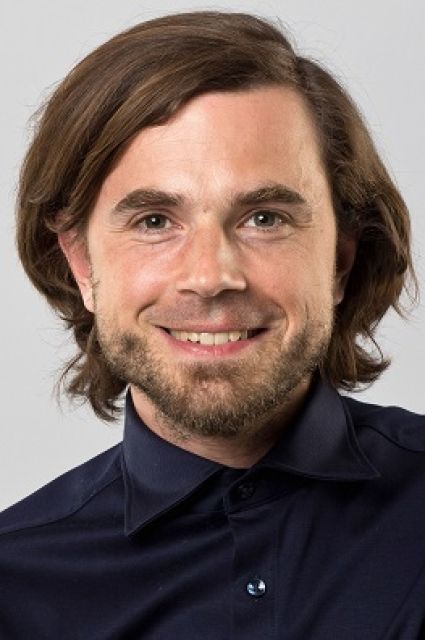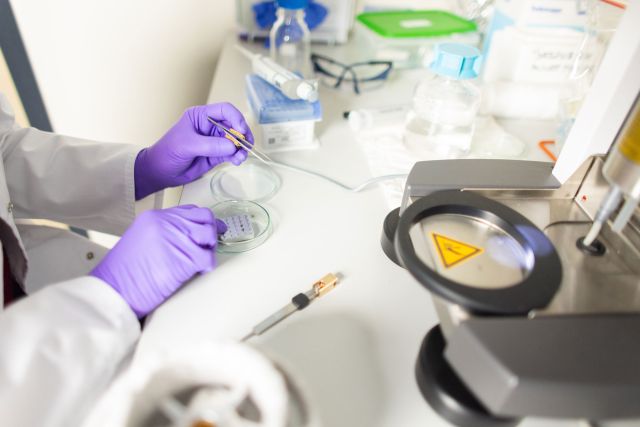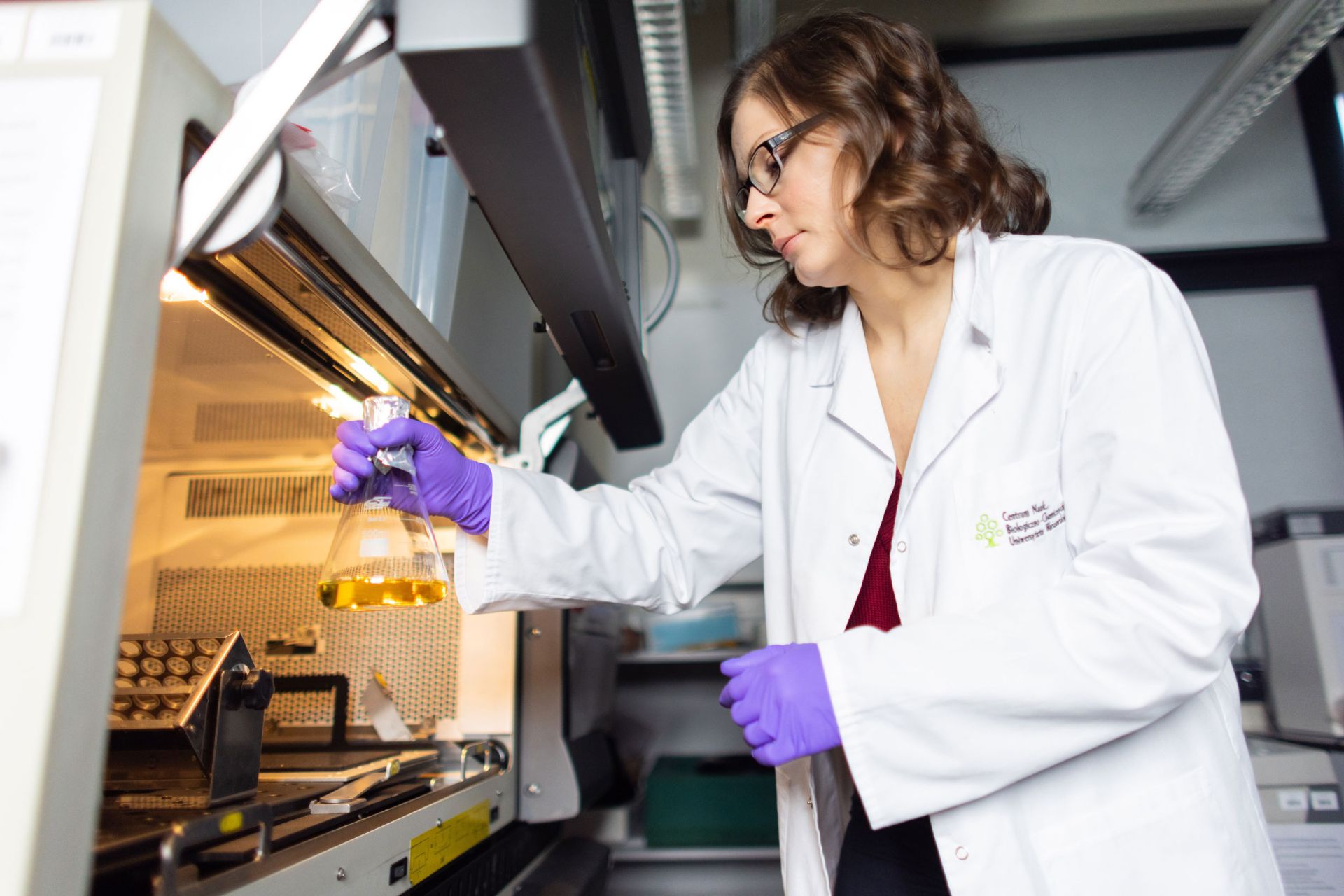15 March 2024
The National Science Centre has launched the OPUS 27 call for research projects addressed at researchers at any stage of their research career. Research projects may be carried out over a period of 12, 24, 36 or 48 months. Under OPUS 27, funding may be requested for research projects carried out:
- in collaboration with partners from foreign research institutions;
- without foreign partners;
- with the use of large-scale international research infrastructure by the Polish research teams.
Please note: Under OPUS 27, funding must not be requested under the Lead Agency Procedure, i.e., in collaboration with partners from foreign research institutions that apply for project funding under programmes launched in collaboration with the National Science Centre pursuant to the Lead Agency Procedure.
The call budget is 450,000,000 PLN.
Proposals must be submitted electronically via the OSF submission system (https://osf.opi.org.pl) pursuant to the Proposal Submission Procedure.
The call for proposals in the OSF submission system closes on 17 June 2024, at 4 p.m.
SIGNIFICANT MODIFICATIONS:
- the maximum amount of doctoral scholarship for PhD students at doctoral schools in the Salaries and scholarships for students and PhD students category, which scholarships may be disbursed after the mid-term evaluation, shall be modified. For more information, please refer to the How can the project budget be planned section.
- the Regulations on awarding funding for research tasks funded by the National Science Centre as regards research projects shall be amended in particular as regards the Evaluation of proposals in the calls for research projects and Costs in research projects. For more information, please refer to the What is reviewed in the evaluation of proposals and How can the project budget be planned sections.
In response to the Russian invasion of Ukraine, pursuant to a Resolution adopted by the NCN, proposals submitted to the National Science Centre must not provide for any collaboration between Polish and Russian entities. Where any such collaboration is planned, the proposals shall be rejected as ineligible.
Please read the call documents included in this call text.
Show all»
Hide all«
Proposals in the call may be submitted by any entity defined in the NCN Act, namely:
- universities;
- federations of science and HE entities;
- research institutes of the Polish Academy of Sciences, operating pursuant to the Act on the Polish Academy of Sciences of 30 April 2010 (Journal of Laws of 2020, item 1796, as amended);
- research institutes operating pursuant to the Act on Research Institutes of 30 April 2010 (Journal of Laws of 2022, item 498);
- international research institutes established pursuant to separate Acts, operating in the Republic of Poland;
5a. Łukasiewicz Centre operating pursuant to the Act on the Łukasiewicz Research Network of 21 February 2019 (Journal of Laws of 2020, item 2098);
5b institutes operating within the Łukasiewicz Research Network;
- Polish Academy of Arts and Sciences;
- other entities involved in research independently on a continuous basis;
- groups of entities (at least two entities mentioned in sections 1-7 or at least one institution as such together with at least one company);
- scientific and industrial centres within the meaning of the Act on Research Institutes of 30 April 2010 (Journal of Laws of 2022, item 498);
- research centres of the Polish Academy of Sciences within the meaning of the Act on the Polish Academy of Sciences of 30 April 2010;
- scientific libraries;
- companies operating as R&D centres within the meaning of the Act on Certain Forms of Support for Innovative Activity of 30 May 2008 (Journal of Laws of 2022, item 2474);
- legal entities with their registered office in Poland;
13a. President of the Central Office of Measures;
- natural persons; and
- companies conducting research in another organisational form than laid down in sections 1-13.
Researchers at any stage of their research career (PhD degree not required) may serve as principal investigators if they have at least one research paper published or accepted for publication. For research in arts, the principal investigator must have at least one paper published or accepted for publication or at least one artistic achievement or achievement in research in arts completed. Papers and/or artistic achievements included in the proposal should cover the period of 10 years prior to the proposal submission year (as of 2014). In specific cases, this period may be extended. (It can be extended by any long-term (in excess of 90 days) documented sick leave or physiotherapy leave granted on account of being unfit to work. This period may also be extended by the number of months of a childcare leave granted pursuant to the Labour Code and in the case of women, by 18 months for every child born or adopted, whichever manner of accounting for career breaks is preferable.)
A narrative CV is allowed in this edition of the call. We recommend that you use the annexed (optional) template of the principal investigator’s academic and research track record.
Please note: The principal investigator must reside in Poland for at least 50% of the project duration period and be available to the host institution for the project. The foregoing obligation does not apply to evidenced project-related business trips or holiday, time off work and other excused absence at work governed by the applicable laws.
The principal investigator must be a person employed at the host institution for the entire project duration period pursuant to at least a part-time employment contract. The foregoing does not apply to persons receiving a pension under the social insurance scheme.
Restrictions on submitting proposals are described in Chapter III of the Regulations on awarding funding for research tasks funded by the National Science Centre as regards research projects, adopted by the NCN Council on 4 March 2024.
In a specific edition of the calls, the same person may be named as the principal investigator in one proposal only, i.e., in this edition of the calls, one may be named as the principal investigator in either an OPUS proposal or PRELUDIUM proposal.
Proposals covering research tasks overlapping tasks specified in another proposal submitted earlier may only be submitted after the funding decision has become final.
Please note: The total number of NCN projects managed by a researcher and proposals submitted to the NCN that are pending evaluation or have been recommended for funding, in which the researcher in question is named as the principal investigator, must not be more than two, or three if the researcher manages at least one project funded under an OPUS call within the framework of LAP cooperation or under a call launched by the NCN in collaboration with foreign research-funding agencies or is named as the principal investigator in at least one proposal submitted to the NCN that is pending evaluation or has been recommended for funding under an OPUS call within the framework of LAP cooperation or a call launched by the NCN in collaboration with foreign research-funding agencies.
The foregoing limits does not apply to any projects or proposals submitted to PRELUDIUM BIS and/or DIOSCURI.
Please see the eligible funding requests in the call.
Possible combinations are shown in the table below:
| Number of NCN research projects I manage1 and proposals2 I have submitted to the NCN |
Can I submit another funding proposal? |
|---|
| Total |
Research projects OR proposals under domestic calls3 |
Research projects OR proposals under international calls4 |
under domestic call |
under international call |
|---|
| 0 |
0 |
YES |
YES |
|---|
| 1 |
1 |
YES |
YES |
|---|
| 2 |
2 |
0 |
NO |
YES |
|---|
| 2 |
1 |
1 |
YES |
YES |
|---|
| 2 |
0 |
2 |
YES |
YES |
|---|
| ≥3 |
3 |
NO |
NO |
|---|
1 Project management applies to the period from the date of signing the funding agreement under NCN calls until the date of submitting the final report on the project performance.
2 The limit does not apply to proposals pending evaluation or recommended for funding.
3 Research projects or proposals under NCN calls: Opus, Preludium, Sonatina, Sonata, Sonata Bis, Maestro and research projects under Harmonia, Symfonia and Covid-19.
4 The calls launched by the NCN in collaboration with foreign research-funding agencies include: calls launched under EU-funded programmes, e.g., ERA-Net and European Partnerships (UNISONO, POLONEZ, POLONEZ BIS):
- calls launched by the networks of research-funding institutions not co-financed from the EU funds, including within the framework of LAP cooperation (OPUS LAP/ WEAVE, WEAVE UNISONO);
- bilateral calls of the NCN and foreign partner institutions (GRIEG, POLS, IDEALAB, BEETHOVEN, BEETHOVEN CLASSIC, BEETHOVEN LIFE, CEUS, MOZART, ALPHORN, ALPHORN COVID-19, DAINA, SHENG);
The limits shall not apply to:
- PRELUDIUM BIS, Dioscuri, TANGO and ARTIQ proposals/ projects,
- MINIATURA proposals/ research activities,
- NAWA proposals/ research components,
- FUGA and UWERTURA fellowships,
- ETIUDA scholarships, NCN Programme for researchers from Ukraine to continue research in Poland and NCN special scholarship programme for Ukrainian students and young researchers .
Basic research proposals may be submitted to the call in any of 26 NCN panels comprising three groups:
- HS – Arts, Humanities and Social Sciences;
- NZ – Life Sciences; and
- ST – Physical Sciences and Engineering.
Proposals are reviewed within the panels to which they have been submitted (e.g., HS1, ST1, NZ1). The principal investigator selects the panel. The panel cannot be changed once the proposal has been submitted. If an incorrect panel is selected, proposals may be rejected in the course of a merit-based evaluation.
Funding may be requested for projects lasting:
- 12 months,
- 24 months,
- 36 months or
- 48 months.
In research projects, in addition to the principal investigator, research tasks may be carried out by co-investigators, including students, PhD students, post-docs and/or senior researchers.
A post-doc type post is a full-time post, scheduled by the project’s principal investigator for a person who has been conferred a PhD degree within 7 years before 1 January of the year of employment in the project. This period may be extended pursuant to the terms laid down in the Types of costs in research projects funded by the NCN.
A post-doc must be a person who has been awarded their PhD degree by another institution than the one employing them in this capacity or must has completed a continuous and evidenced post-doctoral fellowship of at least 10 months in another institution than the host institution for the project and in another country than the one in which they have been conferred their PhD degree. A post-doc in the project must be recruited in an open call procedure.
Please note: The NCN Council calls attention to the organisation of open calls for post-docs. According to the Regulations, call organisers must respect the eligibility criterion of 7 years from the date of award of the first PhD.
PhD student(s) who is/are NCN scholarship recipient(s) must be recruited in an open call procedure.
A senior researcher post is a full-time position co-funded by the host institution, scheduled by the project’s principal investigator for a person who has been conferred a PhD degree within at least 7 years before submission of the proposal, has expertise, unique skills and experience necessary to carry out the research tasks entailed by the project.
The rationale of employment of particular members of the research team in the project will be evaluated by the Expert Team. The competences and tasks to be performed by particular members of the Expert Team must be described in the proposal. For more information on the budget for salaries and scholarships, please refer to the Types of costs in research projects funded by the NCN.
The terms of the call do not specify the maximum number of research team members.
The project budget must be justified as regards the subject and scope of research and must be based on reasonable calculations. The NCN does not specify the minimum or maximum amount of the project budget for OPUS calls. Expenditure must be relevant to the research plan and project tasks. A proposal may be rejected if unreasonable costs are planned.
The project budget includes direct costs and indirect costs.
Direct costs include:
- full-time remuneration for the principal investigator: PLN 170,000 per annum if the principal investigator is employed full-time and up to PLN 3,000 per month if the principal investigator is employed otherwise;
- remuneration for co-investigators in the project:
- full-time remuneration for post-docs: PLN 140,000 per annum (which may be increased in well justified case),
- senior researcher position: PLN 70,000 per annum.
Please note: The senior researcher position must be co-financed by the participating entity in the amount of at least PLN 70,000 per annum;
- salaries and scholarships for students and PhD students (up to PLN 10,000 per each month of project performance),
- additional remuneration for members of the research team; if the principal investigator is not to be employed full-time in the project, their remuneration is paid for from the pool allocated for additional remuneration;
- purchase of research equipment, devices and software;
- purchase of materials and small equipment;
- outsourced services;
- business trips, visits and consultations;
- compensation for collective investigators; and
- other costs crucial to the project which comply with the Types of costs in research projects funded by the NCN.
Please note: The costs of publication of monographs resulting from research projects, as defined in §10 of the Regulation on the Evaluation of the Quality of Research Activity issued by the Minister of Science and Higher Education on 22 February 2019 (Journal of Laws of 2019, item 392) may only be incurred following a positive review by the NCN.
Indirect costs include:
- indirect cost of Open Access (up to 2% of direct costs) that may be designated only for the cost of open access to publications or research data;
- other indirect costs (up to 20% of direct costs) that may be spent on costs that are related indirectly to the research project, including the cost of open access to publications and research data.
In the case of entities applying for state aid, indirect cost including indirect cost of OA and other indirect cost must not exceed a total of 20 % of direct cost and the following categories of other direct costs are disregarded in the calculation of indirect costs: materials and small equipment, business trips, visits and consultations, collective investigators, and other.
Furthermore, during the project performance, the host institution shall arrange with the principal investigator in the project for the distribution of at least 25 % of the funds arising from the other indirect costs actually incurred in the project.
PLEASE NOTE: The Salaries and scholarships for students and PhD students category has been modified.
The maximum doctoral scholarships for PhD students at doctoral schools may be paid after their mid-term evaluation.
If the principal investigator intends to engage a PhD student from a doctoral school at the proposal submission stage, a doctoral scholarship may be paid from the budget for salaries and scholarships for students and PhD students in the amount of no more than:
- PLN 5,000 up to the month of the mid-term evaluation of a PhD student;
- PLN 6,500 after the month of the mid-term evaluation of a PhD student.
The budget for salaries and scholarships for students and PhD students under OPUS shall remain the same and shall be PLN 10,000 per each month of project performance set forth in the proposal. Additional PLN 1,500 may be set in the proposal per each doctoral scholarship recipient to cover the cost of doctoral scholarship after their mid-term evaluation. The total amount of an increase per each month of project performance set forth in a proposal submitted to the OPUS call must not exceed PLN 3,000.
PLEASE NOTE: If the budget for salaries and scholarships for students and PhD students set forth in the proposal exceeds the limit of PLN 10,000 per each month of project performance under the proposal, the funds above the limit can only be used for the cost of doctoral scholarship of a PhD student after the month of their mid-term evaluation. Otherwise, the funds must be returned to the National Science Centre.
The maximum amount of
- doctoral scholarships for PhD students before their mid-term evaluation,
- NCN scholarships for students and PhD students and
- salaries for students and PhD students,
shall remain the same.
Together with other European cOAlition S agencies, the National Science Centre has drafted its Open Access Policy. In accordance with its vision of open access to research results and publications, the NCN requires that all research results should be made available in full and immediate open access. In accordance with the principles of Plan S, the National Science Centre recognizes the following publication routes as compliant with its open access policy:
- publication in open access journals and on open access platforms registered, or with pending registration, in the Directory of Open Access Journals (DOAJ);
- publication in subscription journals (hybrid journals in which some of the articles are open access and some require payment of a publication fee), as long as the Version of Record (VoR, i.e. a version of record published in a journal with its own typeface and branding. Other terms: published version or publisher’s pdf) or the Author Accepted Manuscript (AAM, i.e. the final manuscript version created by the author, including all the revisions introduced after the peer review, and accepted for publication in the journal. Other terms: post print, author accepted manuscript) is published, by the author or publisher, in an open repository immediately upon the article’s online publication;
- publication in journals covered by an open access licence within the framework of so-called transformative agreements that must be inscribed in the Efficiency and Standards for Article Charges registry (ESAC-registry) and in transformative journals (i.e. journals actively committed to transitioning from a subscription journal to a fully open access journal. The current list of transformative journals is available here). Transformative journals must meet the criteria laid down in the Guidelines on the Implementation of Plan S and must allow open access publication of original scientific articles.
PLEASE NOTE: This publication route applies to papers accepted for publication or published before 31 December 2024.
Manuscripts must be published using the CC-BY licence. In the case of transformative journals, the CC-BY-SA licence can also be used. The CC-BY-ND licence may also be used (regardless of the publication route selected).
More information on open access publication terms/instructions can be found here, as amended.
For more information, please refer to the Open Access Instructions.
PLEASE NOTE: Projects for which final reports are submitted to the NCN by 31 December 2025 may benefit from transitional provisions mitigating the NCN’s Open Access Policy (read more). We recommend that you read the presentation of the Open Access Team addressing available publication routes and any modifications (recording, presentation).
In grant agreements concluded after 1 January 2021, the data underpinning the scientific publications resulting from the project funded by the NCN must be well-documented pursuant to the FAIR Principles standing for machine or manual Findability, Accessibility, Interoperability or Reusability (the so-called “FAIR Data”). Where possible, data must be made available in the repository, according to the Creative Commons Public Domain CC0 licence (that allows the distribution of data to public domain. Pursuant to the licence, authors can give up their right to data under the intellectual property rights to the extend allowed by domestic law; the licence does not affect patent rights, rights of publicity or privacy). The data citation principles laid down in the Declaration of Data Citation Principles by FORCE 11 and the TOP Guidelines must be complied with. Metadata describing the data sets must be in line with the OpenAIRE.
Proposals in the call may include an application for state aid, except where a natural person applies for funding. For more information, please refer to the State aid section.
In the case of research projects carried out in institutions for which project funding will constitute state aid, funds for students and PhD students can only be planned in the form described as “Salaries for students and PhD students” category under the Types of costs in research projects funded by the NCN.
PLEASE NOTE: All documents concerning proposals for state aid must be signed with a qualified electronic signature in the PAdES format.
Proposals are subject to an eligibility check and merit-based evaluation.
Eligibility checks are carried out by the coordinators. Only complete proposals that comply with the criteria set out in the call text can be accepted for a merit-based evaluation. A proposal may also be rejected as ineligible at the later stage of evaluation.
Proposals approved as eligible are subject to a merit-based evaluation performed in two stages:
Stage I: An evaluation is performed by the Expert Team formed by the NCN Council NCN, based on the data included in the proposal and annexes thereto, with the exception of the full project description. Each proposal is evaluated by two members of the Expert Team acting independently. In the case of a proposal which is assigned an auxiliary NCN review panel specifying disciplines covered by NCN review panels other than the one to which the proposal was submitted, the Chair of the Expert Team may decide to seek an auxiliary review from a member of another Expert Team (interdisciplinary proposals).
After the evaluation, the experts meet at the first Expert Team meeting. Based on the review of the proposals and discussions, a list of proposals recommended for the Stage II of evaluation is compiled by the Expert Team.
Stage II: Proposals are addressed to at least two reviewers who draft individual reviews based on the data included in the proposal and annexes thereto, with the exception of the short project description. Based on the reviews drafted by the reviewers and discussions at the second meeting, a ranking list of proposals recommended for funding is compiled by the Expert Team.
For more information on the proposal evaluation procedure, please refer to the Proposal evaluation procedure for the Expert Team and tutorial video.
Proposals are reviewed within the panels to which they have been submitted (e.g. HS1, ST1, NZ1). The principal investigator selects the panel. The panel cannot be changed once the proposal has been submitted. We recommend that you precisely identify an auxiliary review panel as this may help to selects experts and reviewers for a merit-based evaluation of proposals. The Chair of the Expert Team may decide that interdisciplinary proposals undergo an auxiliary review by an expert from another panel.
The evaluation of proposals focuses in particular on:
- compliance with the basic research criteria;
- scientific relevance, importance, originality and novelty of research or tasks to be performed;
- relevance of the methodology and work plan in relation to the scientific objectives of the project;
- impact of the project results and for high-quality scientific publications and other research outputs of the project, taking into account the specifics of the research field and the variety of forms of impact and output.
- assessment of the feasibility of the proposed project;
- scientific achievements of the principal investigator, including publications in renowned academic press/ journals;
- assessment of other projects conducted by the principal investigator, funded by the NCN or from other sources;
- relevance of the costs to be incurred with regards to the subject and scope of the research; and
- preparation of the proposal and compliance with other requirements set forth in the call text.
The proposal evaluation criteria are now available here.
PLEASE NOTE: The competences, track record and expertise of the person to be employed as a senior researcher as well as justification of the senior researcher position, as described in the proposals submitted to the OPUS call, will be subject to a merit-based evaluation. If the conditions are not met and justification is not substantive, a proposal may be rejected.
Proposals with a zero score or “no” decision agreed by the Expert Team in any reviewed criterion subject to an evaluation (except for the data management and ethics issues in research) shall not be recommended for funding.
Proposals are evaluated within the review panels (i.e., HS1, NZ1, ST1).
Experts are selected by the NCN Council from among outstanding Polish and foreign researchers who are at least PhD holders. Expert Teams are established for each call edition. The composition of the Expert Team is subject to the number and subjects of proposals submitted to each panel.
The call results will be announced on the NCN website and communicated to the applicants by way of a decision by the NCN Director within 6 months of the proposal submission date, by December 2024 at the latest.
If you are intending to submit a proposal to OPUS 27:
- read all call documents included in the call text, in particular:
- obtain data from the host institution for the project that is required to complete the proposal and find out about the internal procedures that may affect the proposal and project performance (cost planned in the project, procedure for acquiring signature(s) of authorised representative(s) of the institution to confirm submission of the proposal);
- if the applicant is a group of Polish entities, an agreement on collaboration for the purposes of completion of the requested research project must be drafted;
- prepare acceptance letters from publishers confirming that the paper has been accepted for publication (when the scientific achievements section includes papers accepted for publication that have not been published yet).
Before the proposal is submitted to the NCN:
- make sure that all information in and annexes to the proposal are correct. Verification of the proposal for completeness in the OSF submission system by pressing the Sprawdź kompletność [Check completeness] button does not guarantee that all information has been entered correctly and that the required annexes have been attached;
- make sure that all tabs have been completed in the correct language;
- disable the final version of the proposal to the NCN;
- download the confirmation of proposal submission – to be signed by the principal investigator and authorised representative(s) of the host institution; and
- upload the signed confirmation of proposal submission.
Once the proposal has been completed and all the required annexes attached, use the Wyślij do NCN [Send to NCN] button to submit the proposal to the NCN electronically via the OSF submission system.
Once the call for proposals has been closed:
- evaluation of proposals will be carried out;
- after each stage of evaluation, the funding decision by the NCN Director will be delivered;
- if the proposal is recommended for funding, a funding agreement will be entered into;
- the project will be carried out pursuant to the funding agreement and Regulations on the implementation of research projects, fellowships and scholarships.
In the event of a breach of the call procedure or other formal infringements, the applicant may appeal against the decision of the NCN Director with the Committee of Appeals of the NCN Council within 14 days of the effective delivery of the decision.

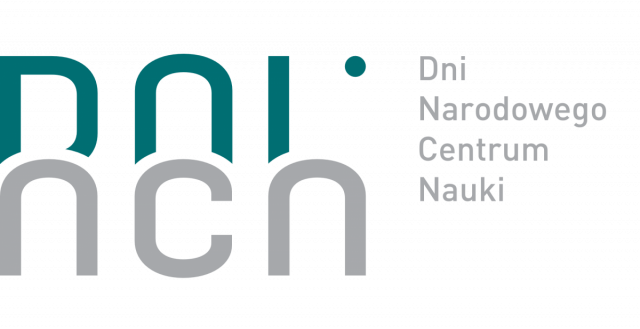
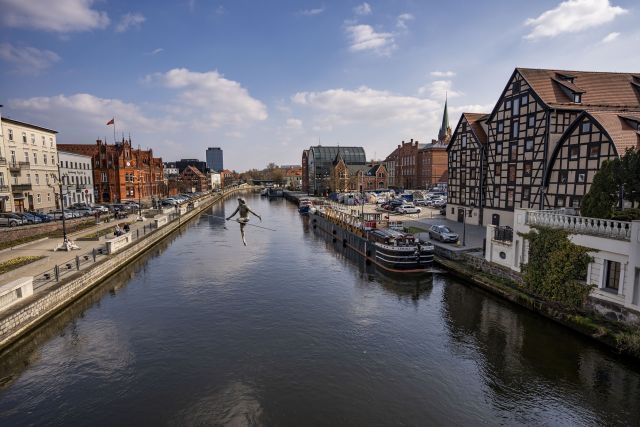
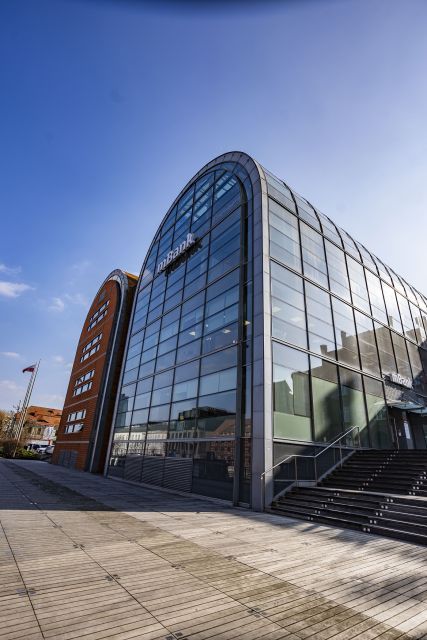
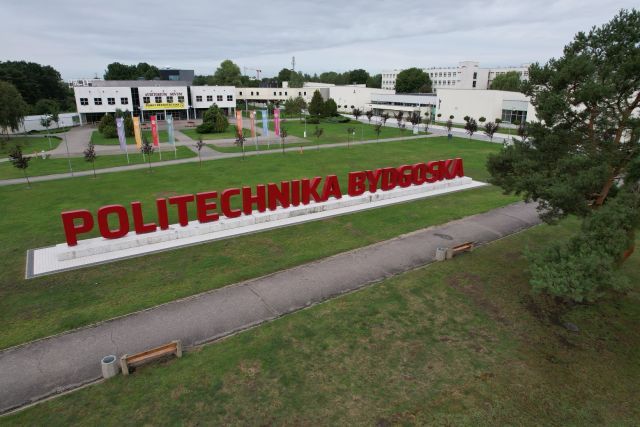

 Who may submit proposals?
Who may submit proposals? Who May Act as the Principal Investigator?
Who May Act as the Principal Investigator? Are there any restrictions on submitting proposals for research projects under NCN calls?
Are there any restrictions on submitting proposals for research projects under NCN calls? What is the subject-matter of the call?
What is the subject-matter of the call? What is the project duration?
What is the project duration? What posts can be occupied by research team members?
What posts can be occupied by research team members? How can the project budget be planned?
How can the project budget be planned? Open access publication of research results
Open access publication of research results Can proposals in this call include application for state aid?
Can proposals in this call include application for state aid? What is the proposal evaluation procedure?
What is the proposal evaluation procedure? What is reviewed in the evaluation of proposals?
What is reviewed in the evaluation of proposals? Who performs the merit-based evaluation of proposals?
Who performs the merit-based evaluation of proposals? When and how are the call results announced?
When and how are the call results announced? More information
More information Useful information
Useful information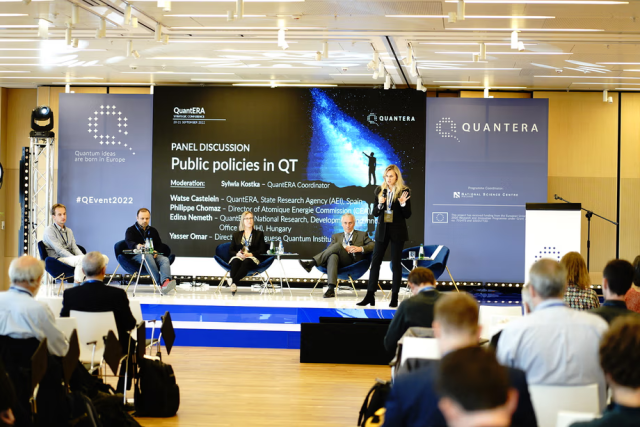
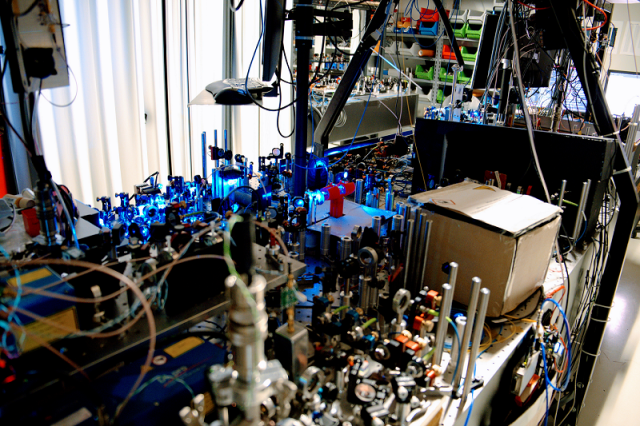
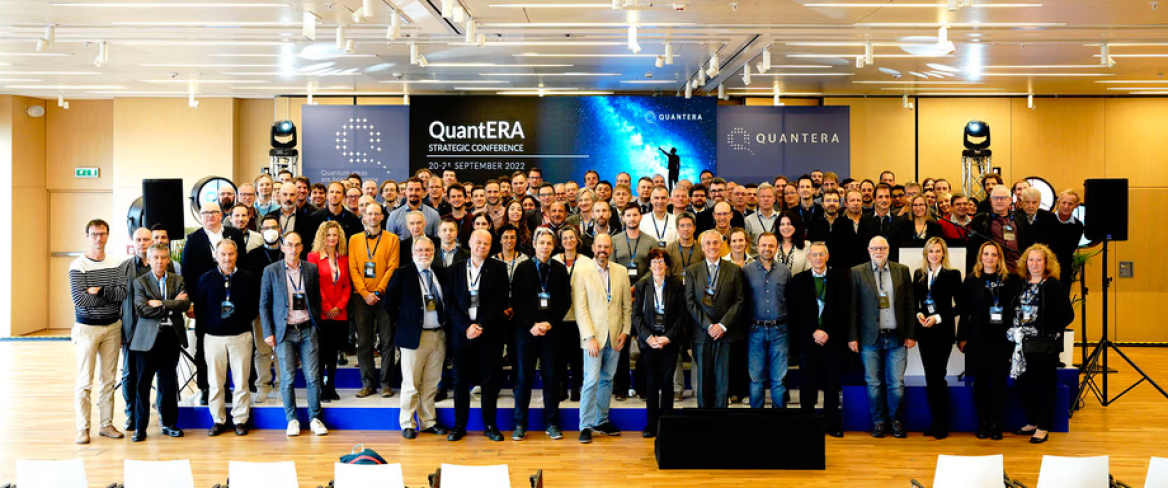
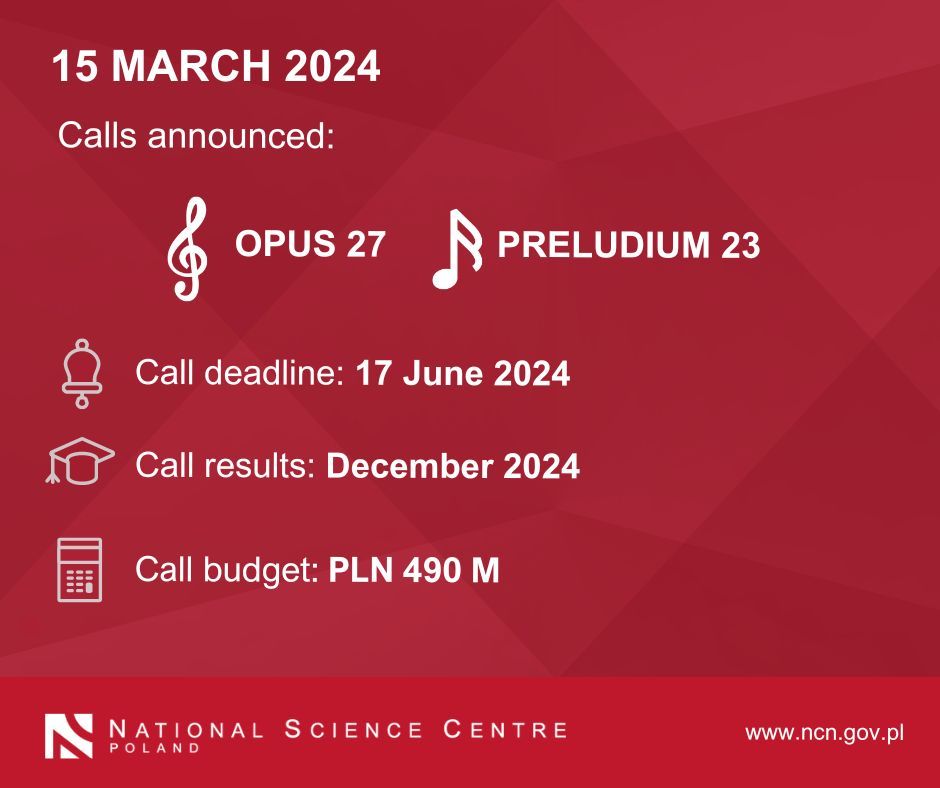
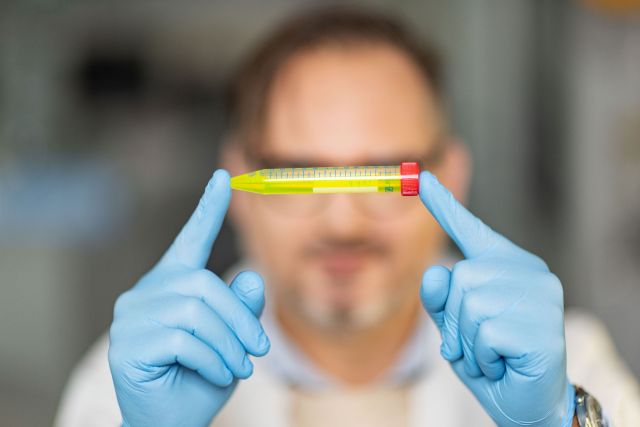
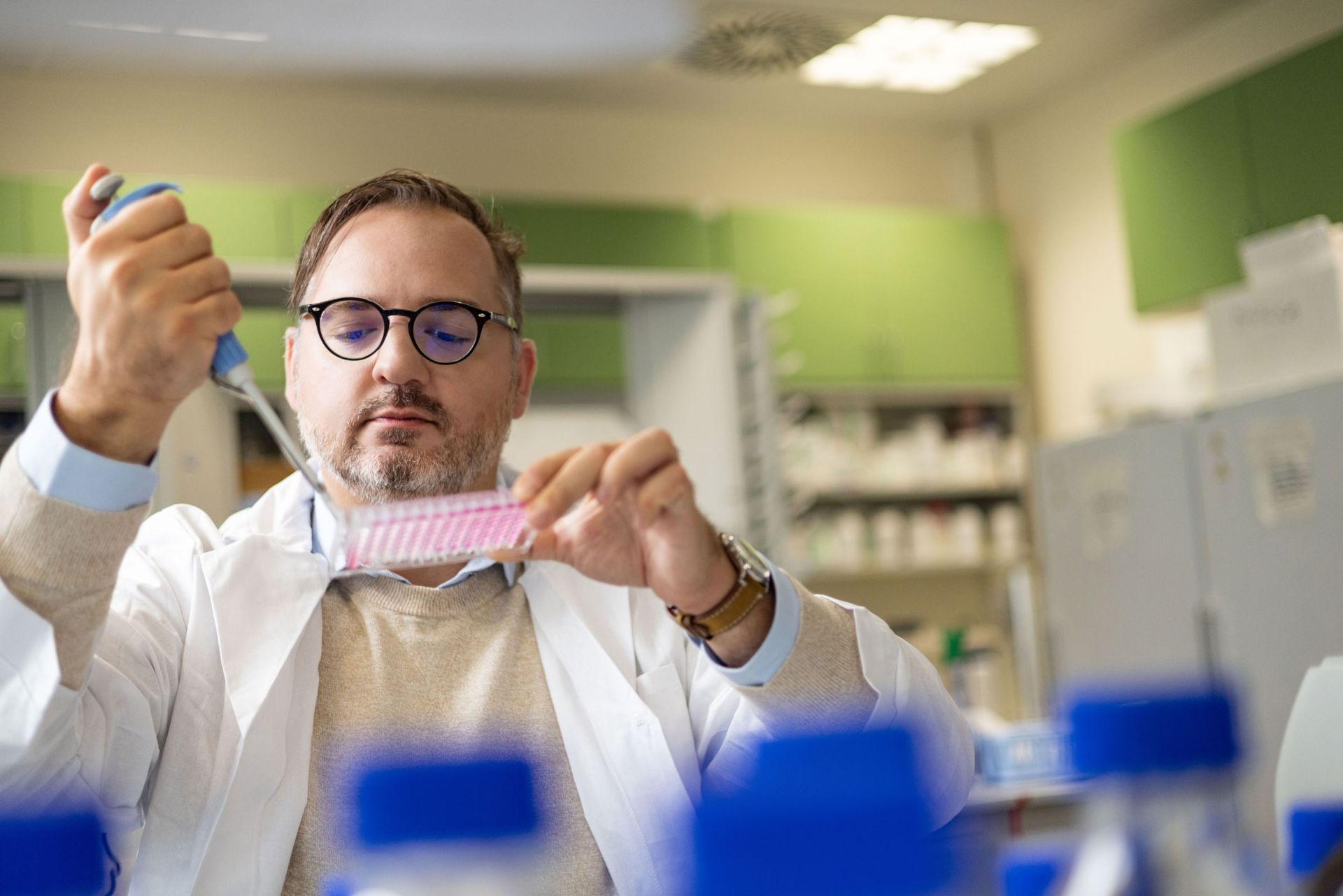
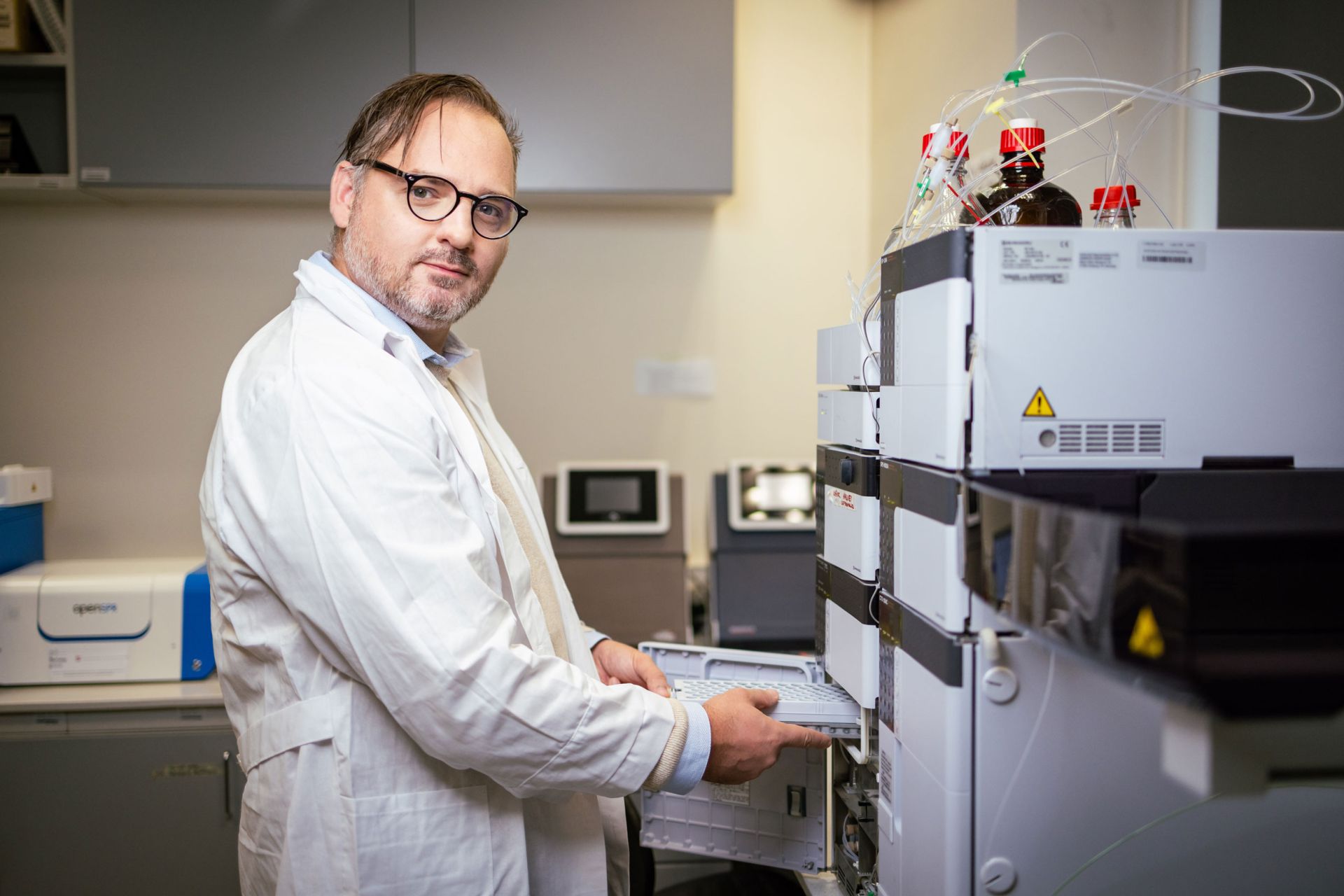
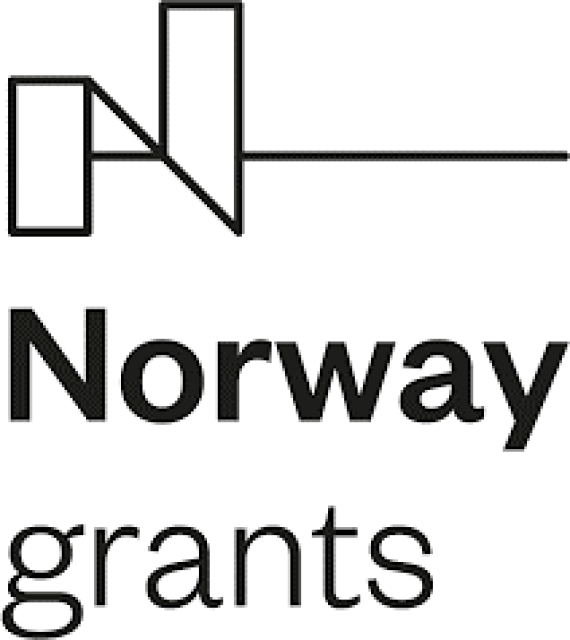
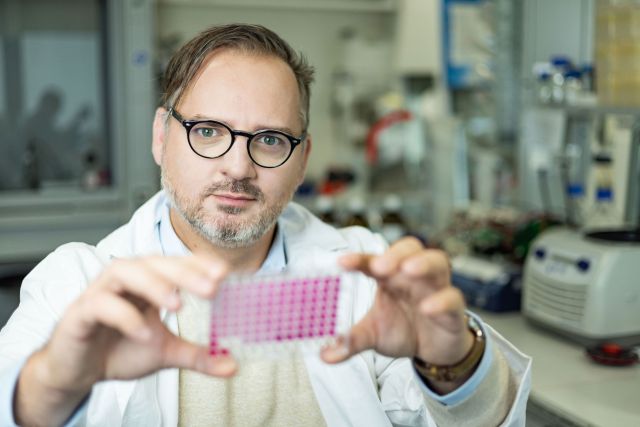
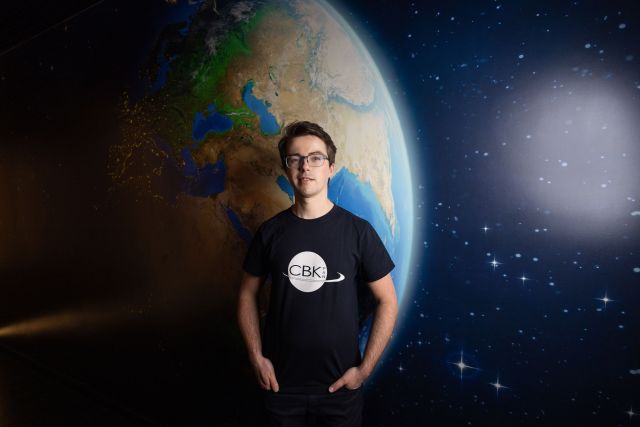

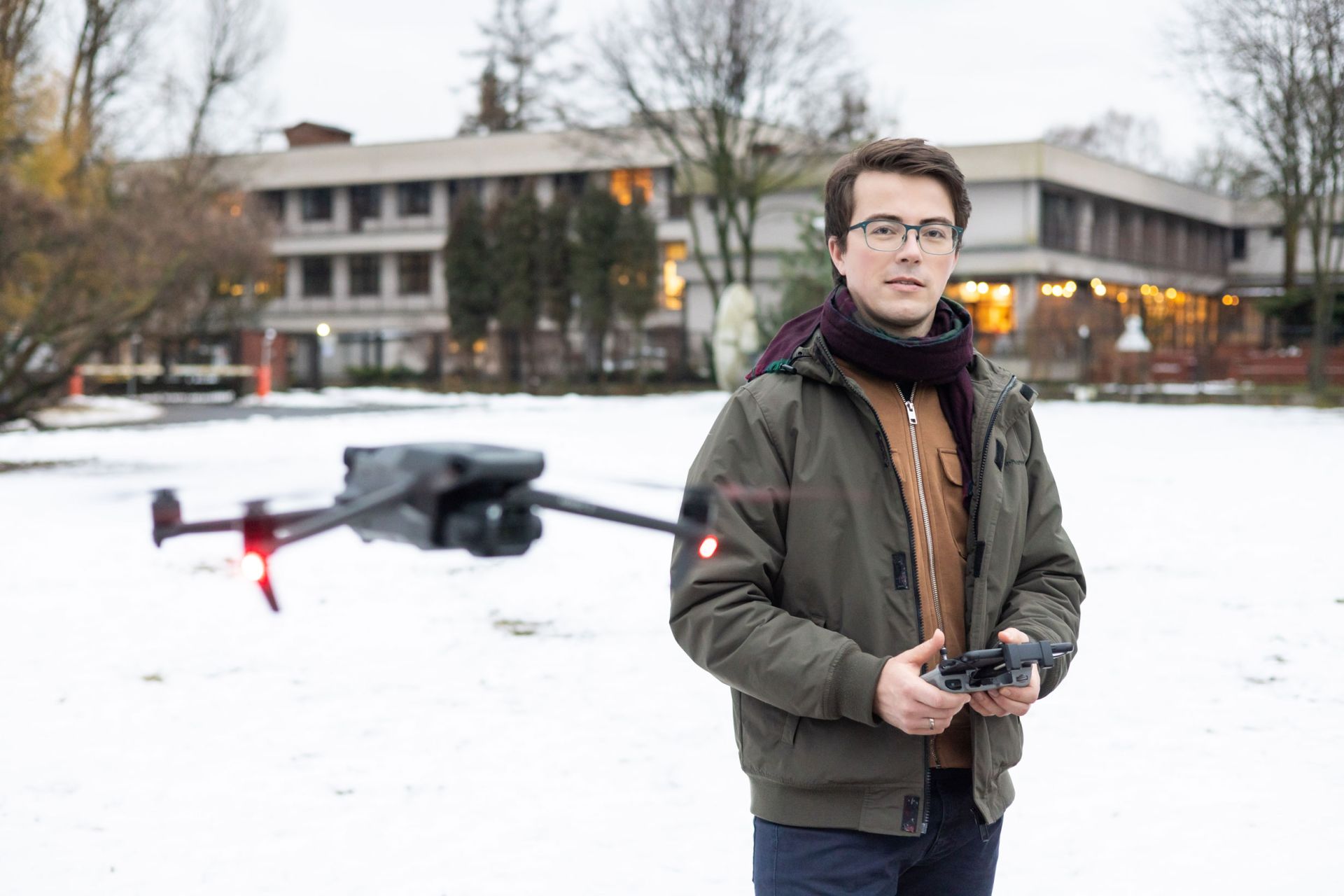
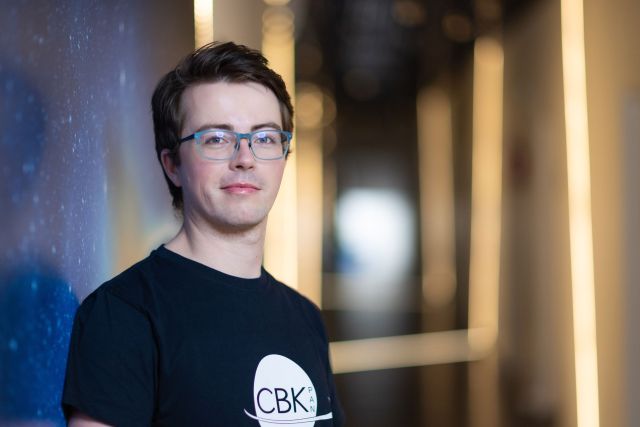
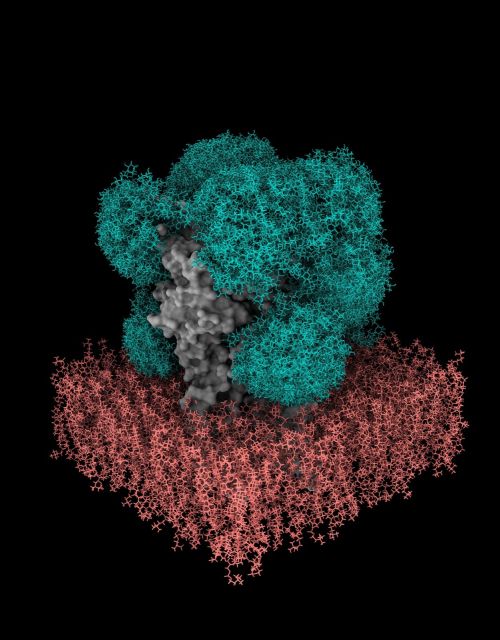 Sugar chains (glycans) that coat the surface of proteins in our bodies also influence how they interact with other molecules. This is why a robust understanding of glycans plays such an important role, e.g., in new drug development. Because of their mobility and variability, experimental research into sugars is very complex. Computer simulations that allow imaging of how glycans coat proteins normally require hundreds of thousands of hours on purpose-built supercomputers, which means they cannot be routinely used in the process of new drug development.
Sugar chains (glycans) that coat the surface of proteins in our bodies also influence how they interact with other molecules. This is why a robust understanding of glycans plays such an important role, e.g., in new drug development. Because of their mobility and variability, experimental research into sugars is very complex. Computer simulations that allow imaging of how glycans coat proteins normally require hundreds of thousands of hours on purpose-built supercomputers, which means they cannot be routinely used in the process of new drug development.